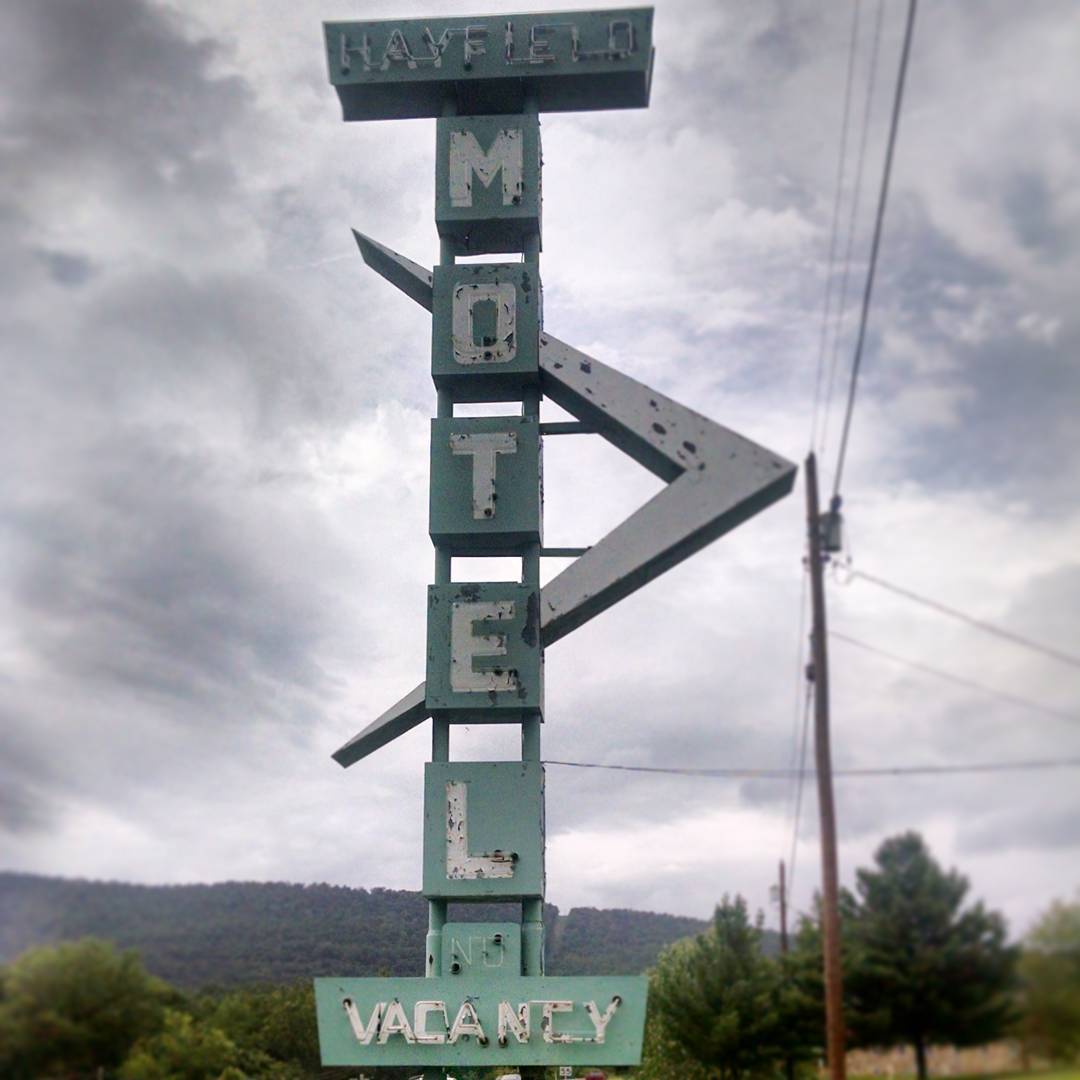 If I make it to heaven and get to meet country music
legend Patsy Cline, we can have a nice little laugh about
the corporal punishment policy of our shared elementary school
And then we could laugh at how we both, generations apart, would
tell people that we grew up in Winchester, not Gore.
If I make it to heaven and get to meet country music
legend Patsy Cline, we can have a nice little laugh about
the corporal punishment policy of our shared elementary school
And then we could laugh at how we both, generations apart, would
tell people that we grew up in Winchester, not Gore.
Because people never admit they're from Gore, Virginia.
Due to the iterant nature of my family -- racing horse people -- we spent much of 1974 and 1975 (when I was 9) living in a trailer home parked halfway up a hill in the woods 11 miles west of Winchester Virginia, a sleepy southern city that hosted the Apple Blossom Festival and the Winchester Downs horse racing track (hence our presence).
But the closest school for my grade level was a small elementary in Gore Virginia, down Northwest Turnpike the other way by a few miles further west.
Backed up against the Blue Ridge Mountains, Gore is a tiny unincorporated town, mostly a few buildings coalescing around a single turnpike offramp. The school house (now an office building) was a traditional brick structure with a single railroad track run by the Winchester and Western running along the back field. When I attended, multiple grades still gathered in a single room.
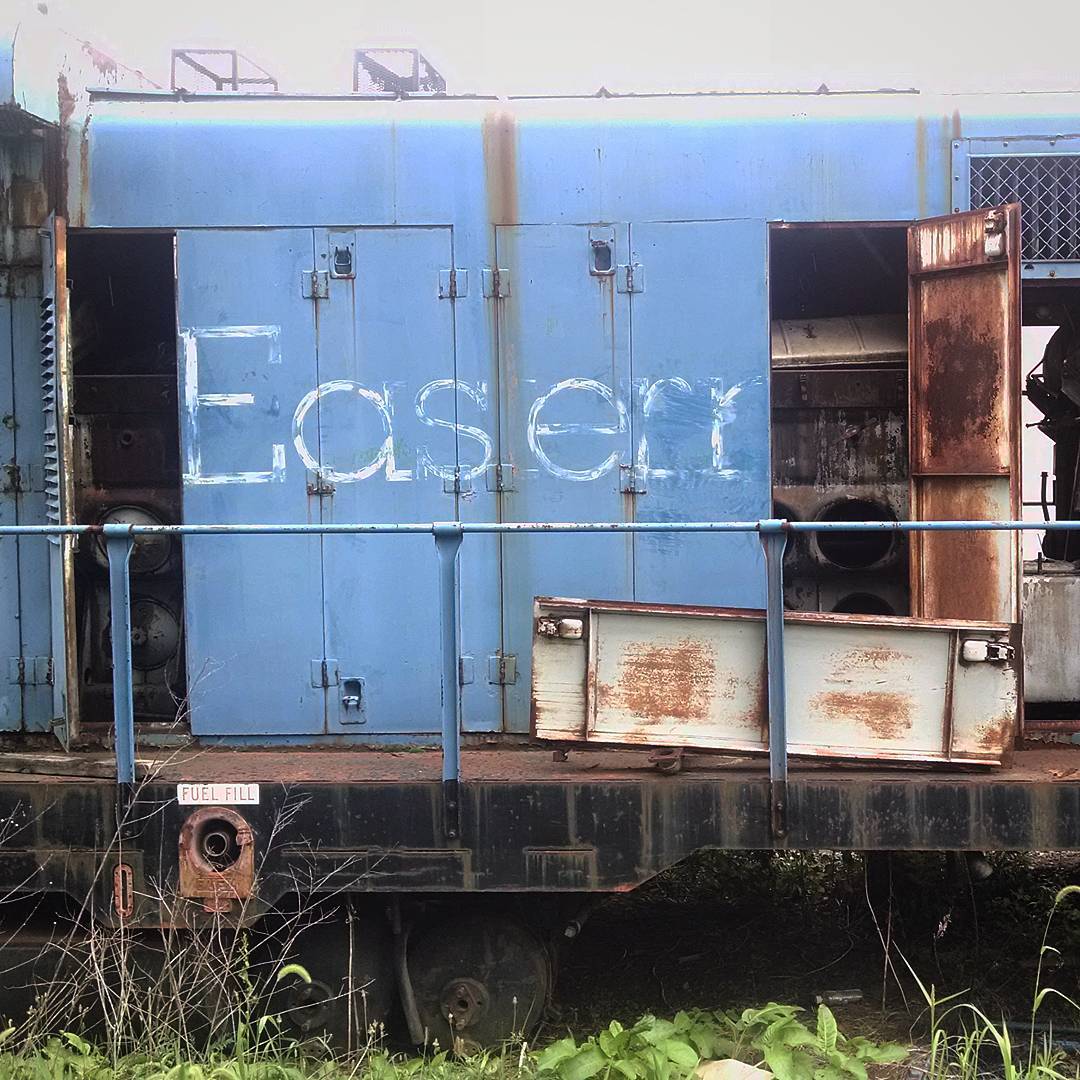
We lived in a prefabricated mobile home at the edge of a rambling property owned by our landlords, the Neff family. Between our trailer and their their sprawling rancher was a pond. On summer days, the patriarch, a lumbering giant of a man, would motor his speed boat round and round this modestly-sized body of water, much to the annoyance of my mom, who moved us here to be in the quiet of the country.
But, for the most part, the Neffs were a friendly, if extremely chaotic, big brood, a sort of Redneck Brady Bunch, with relatives coming and going and various dramas always unfolding. Their lives spilled out everywhere. When we moved into their mobile home, we didn't even bother to ask how the gun shot holes got into the kitchen paneling.
At the time, the elder Neff and his oldest son, 19 year-old Charlie, were constantly at each other, and, after an incident involving a smashed car window, Charlie was thrown out of the house. So he hopped on his bike to go live in an abandoned trailer out in a field a few miles away.
I tagged along as some of the other kid Neffs would go to visit him on the sly. They probably went to drink and other shenanigans, but I didn’t realize it at the time. I was just happy to be included. We’d often spend nights at Charlie's ramshackle trailer, and here was the first time I slept with a girl, “sleep,” for a 9-year old, meaning exactly that. It was a nap in the back bedroom, the sun was going down and “Afternoon Delight” played on the radio, and that’s all I remember.
So one afternoon, Charlie told us about this old man living way back in the woods who made moonshine. He came into town once a year, to get his hunting license. As we walked over there, across fields and down this dirt road, to see if we could steal some shine, Charlie told us this guy’s sad tale.
The alleged bootlegger brought the property just before the second world war, and he was building a dream house for his love at the time, whom he planned to wed.
But the war called him away and by the time he returned she had married another man. Heartbroken, he moved into this smaller shack on the property. It sat next the rotting frame of the larger, never-to-be finished, dream house, and an older car that had long since rusted into disrepair.
We tepidly approached the shack and opened the front door, peering inside the darkened dwelling—there was no electricity. We heard a loud drunkened howl from within the darkness, and a crashing of a bottle.
We hauled ass out of there, given we probably would have gotten shot once the old man found his gun. In retrospect it was a pretty stupid idea. But a heartbroken drunk of a man hiding in the woods for decades was what heartbreak meant in Patsy’s time in those hills.
![]()
Gore could be a pretty depressing place, all in all. Not much money here, the only industry being a lime quarry at which the railroad terminates. And though it is nestled scenically into the Back Creek Valley, with the first foothold of the mountains creeping up behind, there was a certain hardness to the place.
Each day I'd walk 3 miles down Back Mountain Road to Tom's Market to buy a newspaper, then walk my gangly 9 year-old self back to the trailer. Not much to do there, and I was paid a quarter for the task.
Just in the year we lived there, I remember: A girl who cried every single day in the classroom because her father had left home; Northwest Turnpike being shut down one day due to an area teenager flipping his Firebird at some ungodly speed, killing himself and his friend; My friends and I rummaging through the trash in an abandoned house and finding water-stained diaries from a woman who had lived there decades earlier.
Still, Gore has its luminaries, including frontier novelist Willa Cather (I feel that), who grew up there in the early 1900s.
Gore was also the home of early 1960s country music star Patsy Cline, for much of her childhood years. Patsy too attended Sidney Gore Elementary, in the early 1940s. No one at the time mentioned the famous star from Gore. Only recently, at a nearby watering hole, did I meet someone whose father claimed to know Patsy, and "held hands with her on the school bus," which is certianly something a school kid might do with a young Patsy Cline in the 1940s.
And though I lived in Gore 30 years later, I wonder how much of what I experienced in that town, and in that school, that may have also shaped Patsy in some way. Things move slowly in country, and tradition keeps a long memory in these parts.
Which is why I am interested now in the paddlin'.
The house #PatsyCline lived in as an infant. Gore, VA, a tiny hamlet outside Winchester, VA. Ironically, frontier novelist #WillaCather was also born in this village. https://t.co/XAanM2NvJC via @pinterest
— Joab Jackson (@Joab_Jackson) October 13, 2018
By the mid-1970s, corporal punishment in school had largely been abandoned in all but the most rural areas. But not in Gore, where hitting a kid was still a form of acceptable discipline, and its threat carried much weight in the classroom. In our class, everyone had the fear of "being paddled," or being hit in the bum repeatedly by the principal, with an actual wooden paddle that hung from the wall in his office. It was the worst punishment, aside from suspension, that a child could receive.
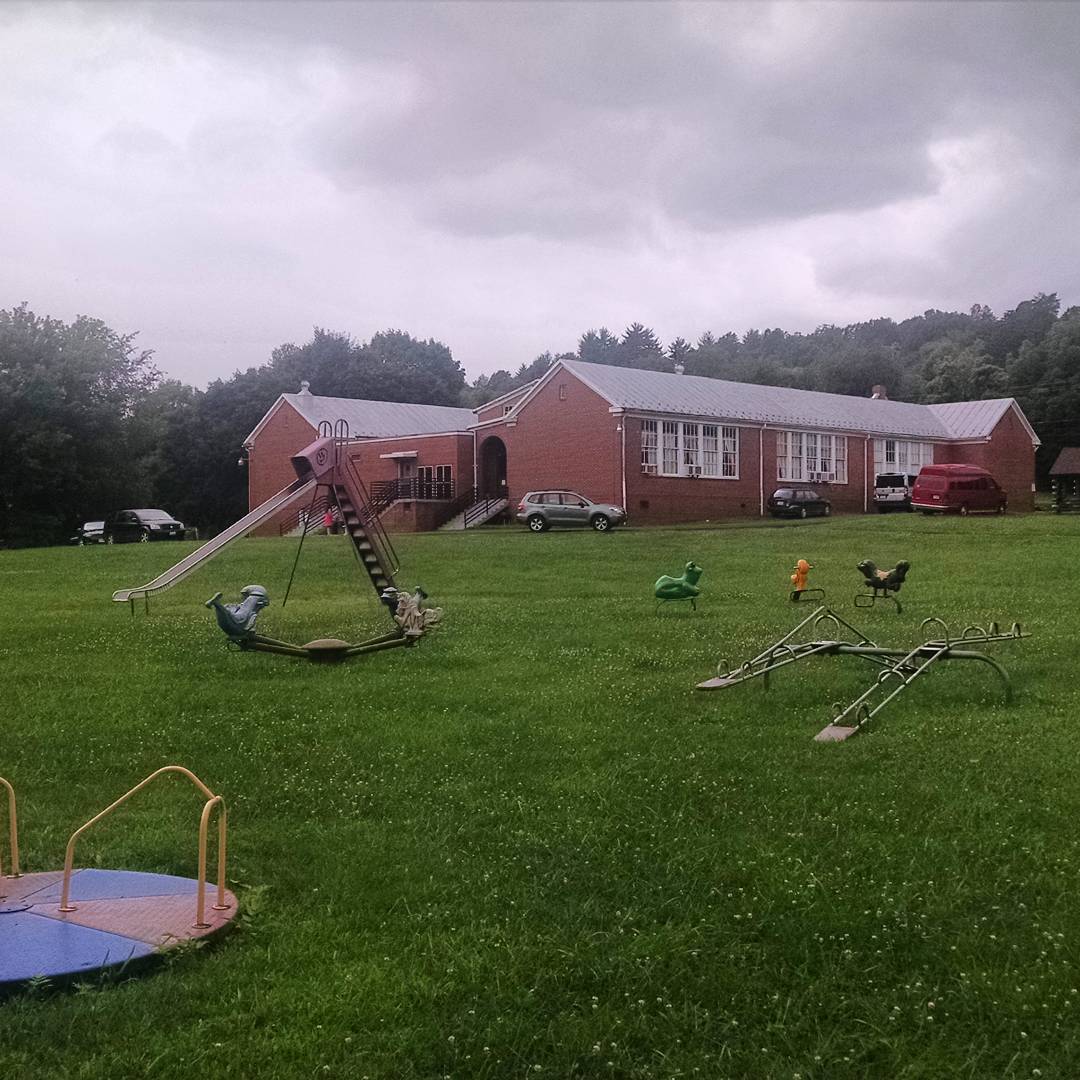
I missed the paddle in my year at Gore, except once. And to this day, I hold the distinct feeling of being framed, for reasons mysterious to me then and now.
In fact, I was so woefully unprepared on all fronts to defend against the crime of which I was accused, that of pulling the hair of the classmate sitting in front of me. In fact that first time I heard about it was when I was hauled into the principal's office with the boy himself along with, for some reason, his parents.
The principal, an older guy, asked me if I could pull this young guy's hair from the back. That would not be possible, I pointed out, because his hair was so short.
And because he was sitting right next to me in the office, I demonstrated the impossibility of this by actually trying to yank at the stubs on the back of this kid's head. The parents where aghast, and the principal used this action as proof that I did pull at his hair, and thusly took his wooden punishment paddle down from the wall.
If you are perplexed by this entire exchange, well, you feel me now.
Looking back on it, I'm thinking the principal needed to pin this crime on someone, given this kid's overzealous parents, and I was largely still seen as a newcomer at the school.
As such, I was mortified by the thought of being paddled, as we actually called it. I might have actually even cried at the sentencing, but, I don't remember much about administering of the punishment itself, which was executed right then and there by the man principal, in front of my teacher, the boy, his parents (Where the fuck were my peops? Damn horse hippies).
Maybe I don't remember much today because it was so traumatic to me at the time? But I have the distinct feeling it was because it was too anti-climatic. I can't remember if I had to pull down my pants, but I did have to bend over the chair, as per the rules of Frederick County Virginia education system, evidently. And my hind quarters received three swift -- though not overtly painful -- blows. I distinctly remember thinking "That's it?" And then we all returned to the day's learnings.
And now I'm wondering if it were also a lesson that Patsy learned decades earlier.
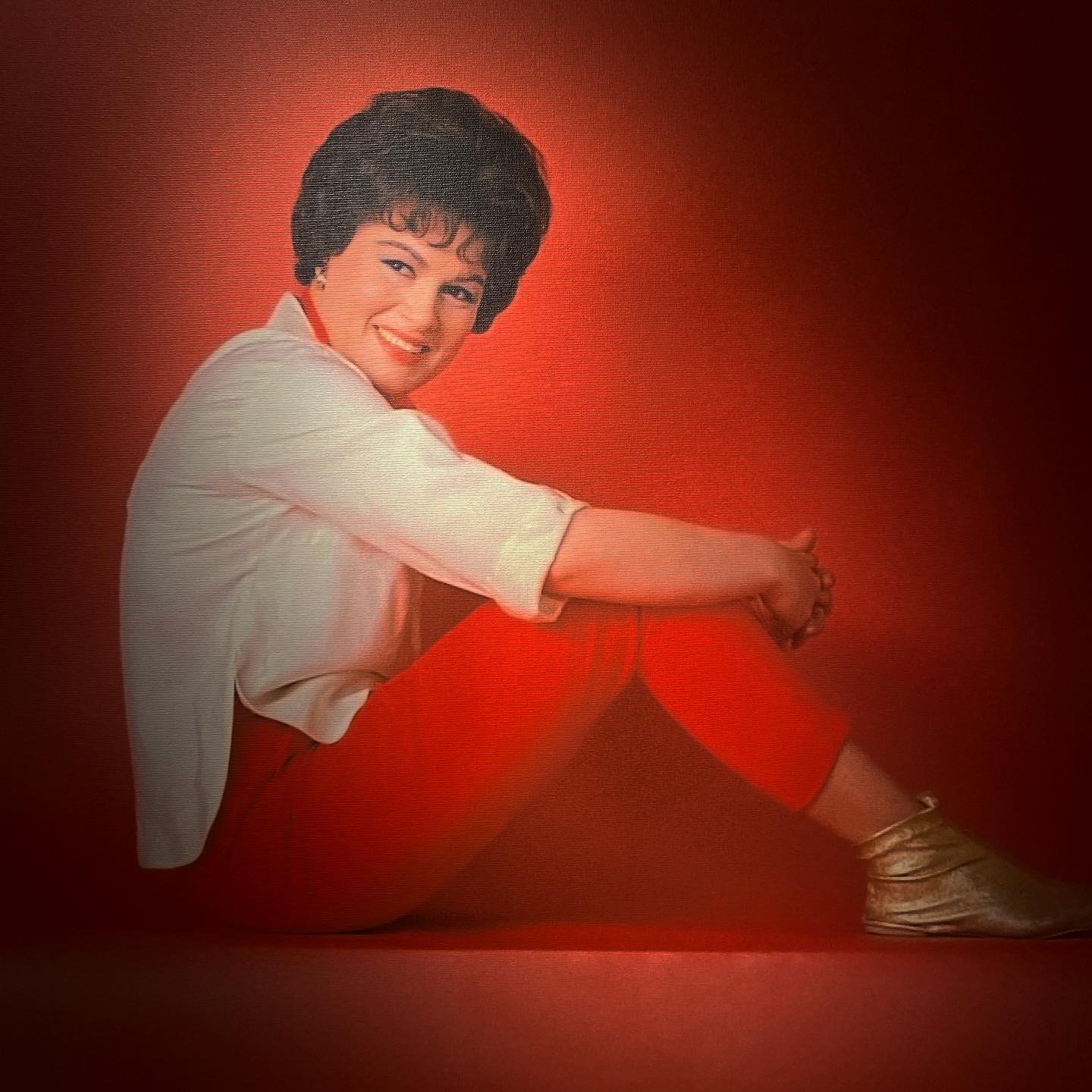
I mean this practice couldn't have been introduced AFTER the 1940s, right? Was she threatened by the paddle. Was she paddled? Her family, like mine, moved around lot in her early days. Was Patsy an outsider to this school, like the crying girl in my class? Or, gregarious as she turned out to be, did she make friends with everyone there? She might have skirted the paddlins, but given her rambunctious ways, I bet not.
Most importantly though, what are the lifetimes of school-issued disciplinarian paddles? Could I have actually been paddled by the principal with the very same paddle that previously paddled Patsy?
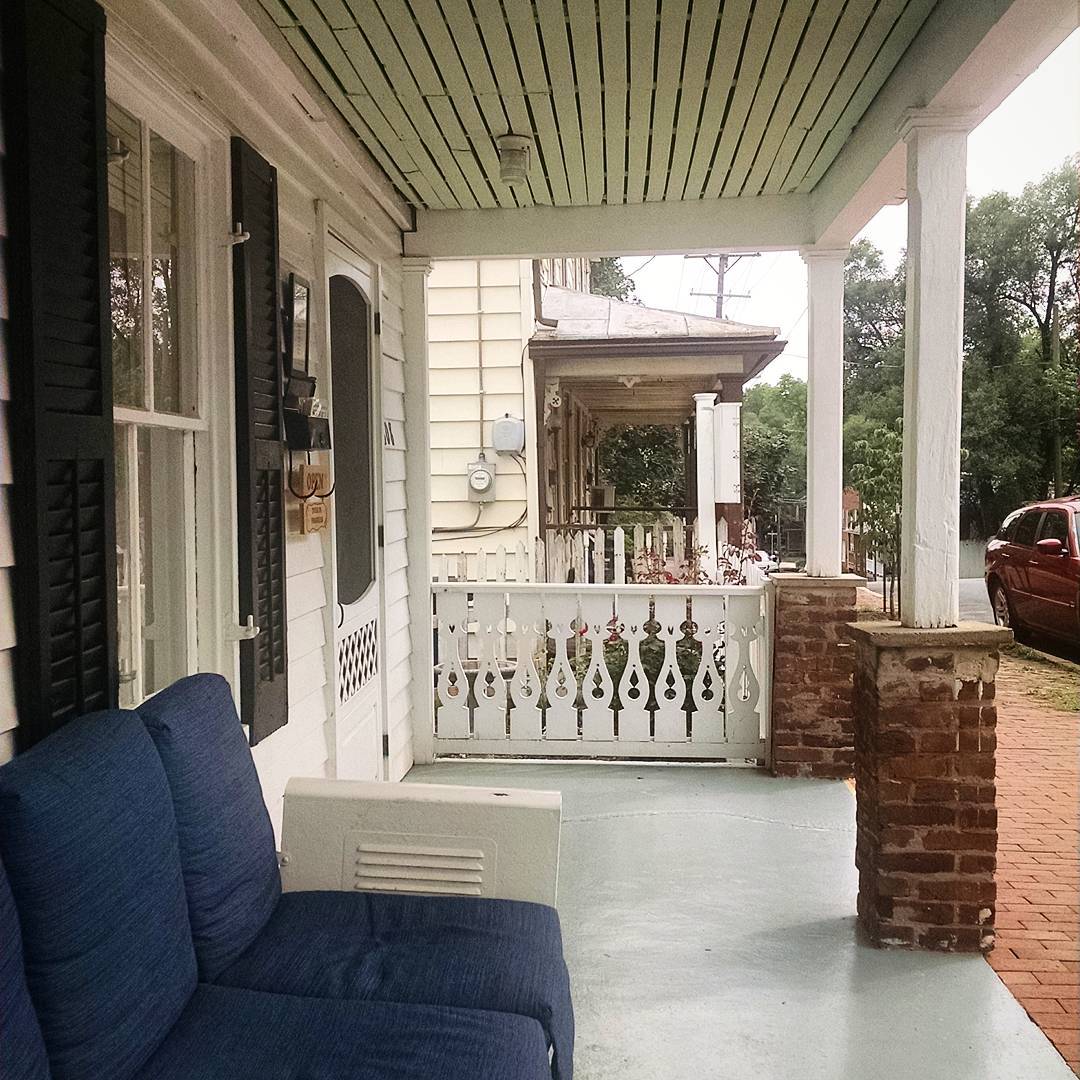
So it was the Winchester and Western that was the track Patsy Cline was on the wrong side of, or just too close to, anyway. In her teenage years, her family moved to Winchester. And when she got famous, that's where she said she was from, even if the people from Winchester weren't too happy to admit it.
"She was an outspoken, brazen woman who sang country music, which was unheard of at the time," the Winchester director of tourism bureau told a regional newspaper in 1995. "Winchester is a conservative place now and was even more so back then."
"I think a lot of the ill feelings had to do with envy and jealousy," she said when asked decades earlier. Mind you these ill feelings persisted at least as late as in the 1990s -- more than 30 years after Patsy's death.
I got a chance to visit the official "Patsy Cline House" in downtown Winchester, where she and her family lived between 1948-57. Don't be fooled by the street address. The house is pure country. They were poor. It is a log cabin gussied up as a regular woodboard home. Pillow cases were made from feedsacks; wallpaper covered the ceiling. Patsy's family lived there before it has running water and electricity. She made black almond cake using almonds from the tree next door. After she became famous, Patsy ended up buying the home for her mother.

That the "official" Patsy Cline house is in Winchester, and not in Gore, is a fact that some folks have taken to point out. In fact, if you visit the house, there is nary a mention of Gore.
"They think Gore is nothing," said then-63 year old truck repairman and lifelong Gore resident, Lyndell Anderson to the Washington Post in 1995. "We feel left out."
And Winchester didn't care much for Patsy's family at the time. Patsy's father went from job to job with ultimately left her mother, Hilda, to take over the household. She took in wash, watched the neighbor's children, raised chickens in the basement. Even after Patsy rose to fame, in the mid-1950s (when Hilda designed Patsy's stage dresses) members of the Winchester society folk would drop their laundry with Hilda, but wouldn't acknowledge her if they saw her downtown, the guide at the house told me. After all, many of Winchester's well-to-do were more into the symphony, or opera. They fancied themselves too sophisticated for the country music.
But there's pretension all up in here. To this very day there is a prevalent snobbery in the U.S. about country music, not unlike Winchester's stubborn reluctance to embrace Patsy, many Americans. When pressed about the matter even today, many will say they don't like country music.
"Two steps up from a sausage salesman," was how my father, who grew up in the 1950s, once described Hank Williams. Even country music has always been somewhat defensive about itself, vacillating between a defiant "back-to-the-roots" stance and giving in to the desire to pretty itself up, go pop, court a larger audience.
And if country music was was disregarded by the urban populace in the 1950s, female country singers were even less so. This was a time when record execs weren't even sure if Kitty Wells, now considered the Queen of Country Music, merited the expense of recording a whole album under her name. These powerful singers spoke to generations of women making their space under sometimes-brutal male dominance. Even compared with today, female country music had but a paper-thin margin of legitimacy then.
So part of the genius that Patsy Cline possessed is how easily she transcended these boundaries. Naturally. Patsy lived large. From the tour guide's account, Patsy was not ashamed of her poverty. She held her own with company of men, swore and drank with the best of them. And her voice, and her personality, filled the room. In today's parlance, Patsy gave Zero Fucks.
In other words, she probably would have felt right at hpme with the Neffs.
She outgrew Winchester quick. After singing for an outfit called The Melody Makers around the VFW Halls and Moose Lodges in these parts, she caught her break on the Arthur Godfrey Show. She appeared at the behest of Jimmy Dean (who turned out to be a true sausage salesman). Despite her western cowgirl outfit (designed by her mother, who would design most of Patsy's stage outfits), Patsy sang total orchestral pop mode, with nary a Back Creek Valley twang in her voice.
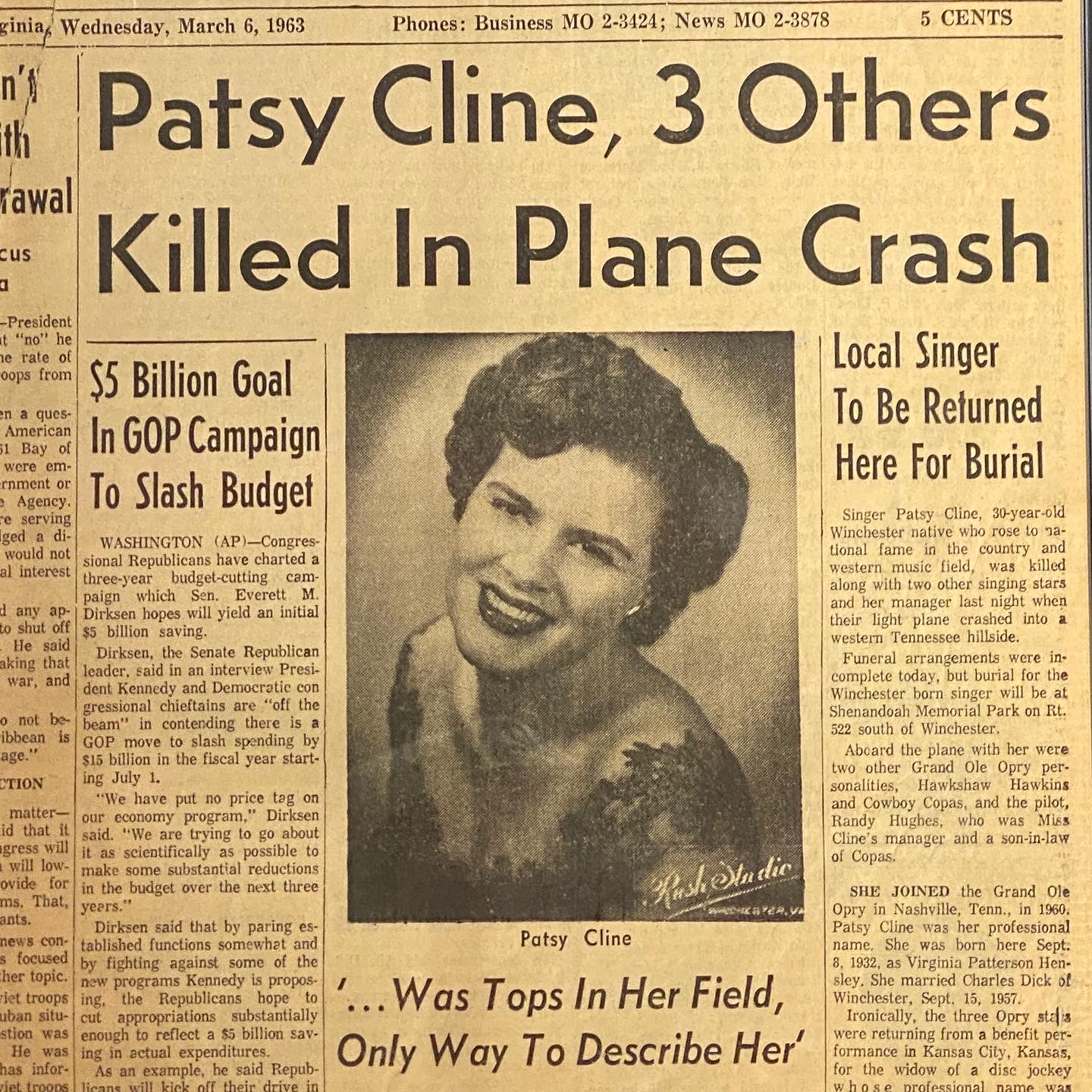
It wasn't so much that Patsy turned her back on country music as much as she expanded beyond it, while still keeping its essence in the core of her songs.
Country music took her as family anyway, with Nashville becoming more of a home to her than Winchester ever was. When she died at 30, at a tragically too-young age of 30, her body was brought home to Winchester for burial. Miles of cars followed her hearse to the graveyard, but most of them were limos from Nashville.
Traditions die hard in those parts.